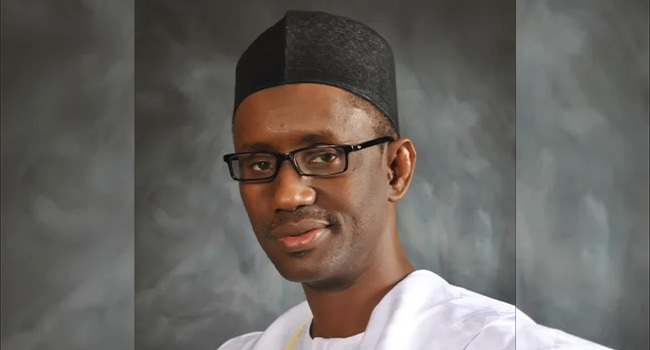National Security Adviser Nuhu Ribadu has stated that the ‘sit-at-home’ directive imposed by separatist groups in the South-East is rapidly losing its influence, with notable improvements in the region’s security conditions.
Speaking at the All Progressives Congress (APC) National Summit in Abuja on Thursday—where the Federal Government unveiled its two-year progress report—Ribadu detailed the strides made under President Bola Tinubu’s administration in tackling insecurity across major flashpoints in the country.
Ribadu explained that key figures of the proscribed Indigenous People of Biafra (IPOB) and its armed affiliate, the Eastern Security Network (ESN), have either been captured or neutralised, substantially weakening the separatist campaign.
“The ‘sit-at-home’ orders are increasingly ineffective,” he said, noting that attacks on security personnel in the region have significantly declined.
He also revealed that over 50 police stations and posts have been rebuilt, as normal social and economic life begins to return to communities across the South-East.
Security Successes in the North-West
Ribadu described the past year as a turning point in the fight against armed banditry in the North-West.
He reported that 11,250 hostages have been rescued since President Tinubu took office, reflecting a significant reduction in mass kidnappings.
“We have delivered decisive blows to top warlords,” Ribadu said, listing notorious figures such as Ali Kachalla, Boderi, Halilu Sububu, Dangote, Isuhu Yellow, and Damuna among those eliminated.
He added that more than 50 gang leaders known as ‘Kachalas’, over 70 deputy commanders, and hundreds of foot soldiers have been neutralised in targeted operations. Additionally, over 35 warlords have surrendered under a non-kinetic initiative dubbed the ‘Kaduna Model’.
A new programme, Operation Safe Corridor North West, has also been launched to support deradicalisation and reintegration efforts.
Progress in the North-East
Turning to the North-East, Ribadu highlighted significant advances in the counter-insurgency campaign.
He disclosed that 13,543 terrorists and criminals have been neutralised, and over 124,408 Boko Haram and ISWAP fighters, along with their families, have surrendered.
Security forces have recovered and destroyed 11,118 weapons and more than 252,596 rounds of assorted ammunition.
Operations in critical areas such as the Timbuktu Triangle and the Tumbu islands are ongoing, with a focus on community resettlement and economic recovery.
Niger Delta Security and Oil Production
In the Niger Delta, Ribadu said that security operations have dismantled 1,978 illegal refineries, destroyed 3,849 dugout pits and 3,773 makeshift cooking sites.
He reported a 47 per cent drop in illegal activities, noting that “for the first time in years, all pipelines are fully operational”.
“Crude oil production has risen to an average of 1.8 million barrels per day,” he said, adding that oil production in Ogoniland is expected to resume after more than 30 years.
He credited these gains to Operation Delta Safe, a coordinated multi-agency security effort in the region.
Combating Cyber Crime
Ribadu also addressed the government’s approach to emerging cyber threats.
He said the investigation into Binance prompted a broader crackdown on criminal activities involving cryptocurrency.
“Numerous suspicious accounts linked to terrorism, banditry, and separatism have been shut down,” he stated.
He revealed that a new Critical National Information Infrastructure Protection Plan has been approved and is now being implemented.
The newly established National Digital Forensic Laboratory is actively assisting military and law enforcement investigations across Nigeria.
Broad Security Challenges and Future Outlook
Ribadu acknowledged the ongoing challenges posed by cybercrime, terrorism, and organised crime, as well as regional instability in the Sahel and Lake Chad Basin.
He noted that climate change and the proliferation of small arms are exacerbating insecurity in neighbouring countries such as Mali, Niger, and Burkina Faso.
“Since 29 May 2023, we have made significant gains in addressing Nigeria’s complex security landscape,” he asserted.
Ribadu emphasised that improved intelligence, focused interventions, and strengthened security frameworks are helping to stabilise conflict zones and reduce casualties.
He concluded by stressing that inclusive economic development, robust infrastructure, and good governance are essential to securing lasting peace.
The APC National Summit was attended by President Bola Tinubu, Vice President Kashim Shettima, Senate President Godswill Akpabio, Speaker of the House of Representatives Tajudeen Abbas, APC National Chairman Abdullahi Ganduje, state governors, party leaders, and other senior officials.



